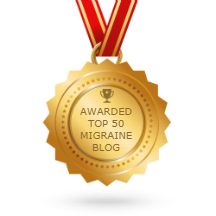Why I'm Unapologetic About My Chronic Illness
So why was I apologizing for something that I didn't even have control of? First of all, I'm a chronic apologizer. I even apologize to inanimate objects when I bump into them. "Sorry" became a filler word for me. When asking a question, I would start with "Sorry," instead of "Excuse me" or the question itself. "Sorry" became a word synonymous with distancing myself from my illness, adding shame to requests that were perfectly reasonable.
Once I realized what I was doing, it was easy to change my attitude. There is no reason why I should be ashamed or embarrassed about my illness. It is as much a part of me as my passions and interests. I always felt that I had to apologize because I was "different." I said "sorry" because my case was difficult and seemed to have no concrete, long-term solutions. I had to learn how to deal with doctors, insurance companies, and medication side effects for a misunderstood illness that still needs a great amount of research to be fully understood. I was never a textbook case, nor will I probable ever be (ex. my blood clot). Now, I don't say "sorry." I talk to doctors about my case calmly and clearly, because I have nothing to be afraid of or "sorry" about. I've already been through the worst.
By not saying "sorry," I'm taking control of my illness. To say it clearly, I'm living my life instead of apologizing for letting my chronic migraines make my life decisions. Chronic migraines don't define me. They don't define my passions, my hopes and my dreams. Rather, they've helped me to see how strong and resilient I am, what my body has endured and how I've come out okay. If I never got sick, I would not be doing what I am today. I would not be writing this blog, or working to raise awareness about chronic and invisible illnesses. So no, I'm not sorry. Even though my life has been a rollercoaster with no end in sight, it's made me into who I am. I am a headstrong, passionate girl who doesn't eat gluten, tyramine or soy and is set on changing the world.
As always, have an amazing migraine-free week.






4 comments: